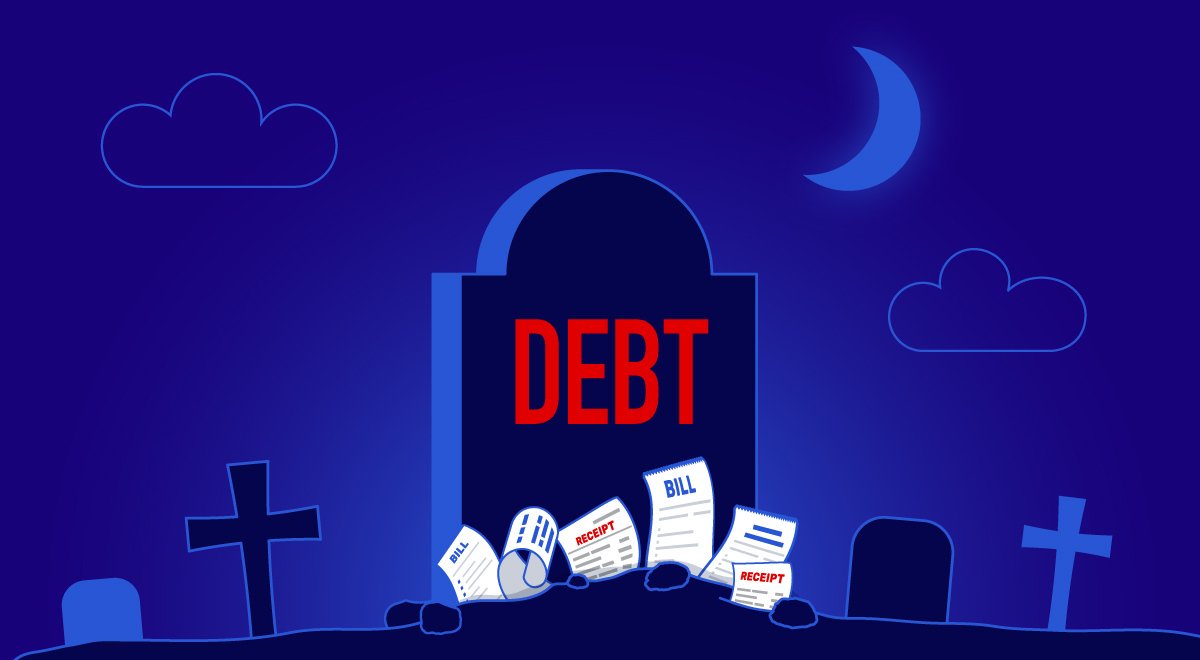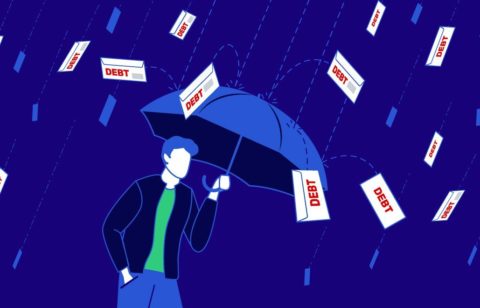Zombies are super popular when it comes to entertainment. There’s a blockbuster zombie movie in theaters every few years, and television shows such as The Walking Dead have been on television forever. Popular video games have even gotten into the action, with every new Call of Duty game giving you the opportunity to fight hordes of zombies. However, while zombies may be great, make-believe fun on the big screen or your television, zombie debt is all too real, and it can give you a real headache if you don’t take the right steps to bury it for good. Here’s how to deal with zombie debt.
What Is Zombie Debt, Anyway?
Zombie debts are debts that return long after they have fallen off your radar, as well as that of the credit bureaus. These debts are sometimes “brought back from the dead” by a collection agency that discovers the debt in their records and decides to collect on it. It’s also increasingly common for some debt collection agencies – often called debt scavengers – to purchase old outstanding debts at a low price and then start hounding borrowers for it, another reason why zombie debt is on the rise.
In some cases, the debt may be something that a creditor or debt collection agency misplaced or forgot about and months or years later attempts to recoup. In other instances, the debt may have been resurrected erroneously. It’s common for a debt that was paid off, eliminated through bankruptcy proceedings, or that has gone beyond any legal statute of limitations for repayment to be mistakenly sent to a borrower by a collection agency. It’s also possible that the zombie debt that’s suddenly haunting you is due to identity theft or fraudulent charges on a credit card.
Checking the Facts on Your Zombie Debt
How to deal with zombie debt starts with gathering the necessary information. If you receive a notification that you owe an old debt that you cannot recall incurring, put in the time to research it. Right from the start, you can request the debt collection company to provide you with a debt validation letter that verifies the debt is real and not another instance of fraud or mistaken identity on the agency’s part.
You should also check any old paper credit card statements, receipts, or online records you have to see if you can find evidence of it. If necessary, call your old creditors to see if they have records of the debt. If all that yields little or no results, the debt may be erroneous, or even an instance of fraud or identity theft. In any case, you should definitely not proceed with paying any debt you don’t believe you incurred.
If you do determine the debt is legitimately yours, you should also determine if you’re still obligated to pay it. States have different statutes of limitations for financial obligations; and, if that debt is legitimately past the authorized payment period, you may no longer be legally bound to repay it.
You can check with your state government’s consumer bureau or a trusted financial advisor to determine how to deal with the zombie debt at that point.
Addressing Zombie Debt
Once you’ve determined whether the zombie debt is yours and if you have to repay it, you’ll be ready to act. If the debt is truly yours and you have the means to pay it, then you should do so. Paying off that zombie debt will put it into a grave forever. If the debt is yours but you’re incapable of paying it off, you could talk to a credit counselor for advice on how to deal with zombie debt or enlist the services of a debt settlement company such as National Debt Relief. Debt settlement can be a great choice to deal with big old debts that come back to haunt you.
If the debt isn’t yours, and you believe it’s erroneous or fraudulent, write a letter to the debt collection agency that challenges the claim against you. If possible, provide any documentation as an attachment to validate whatever you’re claiming. Similarly, if the debt was yours, but you had already paid it off in the past, send a letter indicating that fact, along with any documentation you can provide. You should also send a letter to the debt collection agency if you believe the debt is past the statute of limitations, citing whatever relevant state law applies in your case. Make sure you document the times that you contacted the collection agency. You should monitor your credit at this time as well to ensure that the alleged debt doesn’t affect your credit rating.
Don’t Let Zombie Debt Bring You Down
These tips on how to deal with zombie debt may seem simple, but the fact is that they work. If you follow the steps detailed above, you’ll be able to verify whether the zombie debt you’ve been notified about is yours and will be ready to develop a plan to deal with it. So, don’t stress out about that zombie debt; just find a way to put it into the grave forever!





